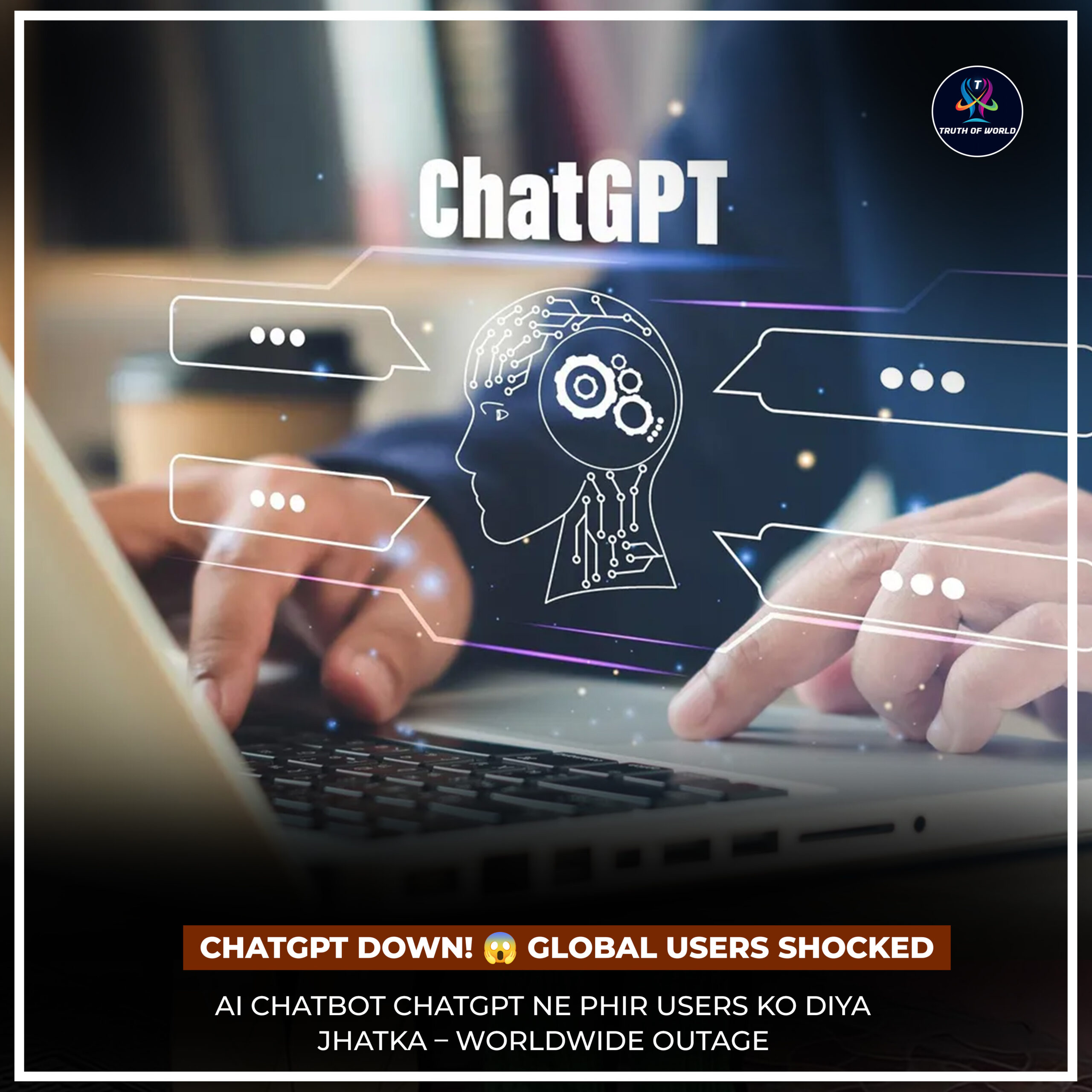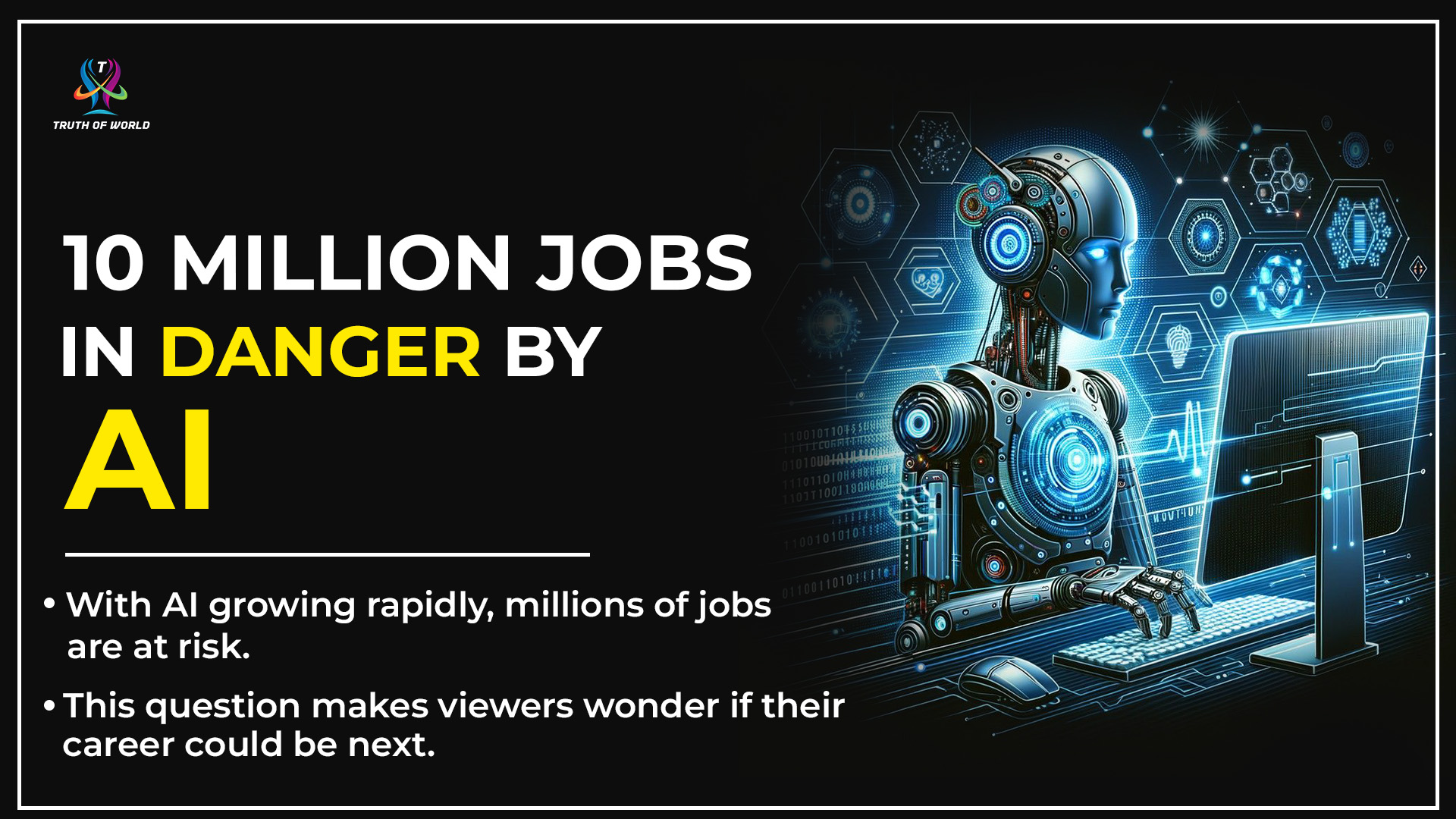Artificial Intelligence has rapidly become a part of daily life, and OpenAI’s ChatGPT stands at the center of this digital revolution. Millions rely on it for content creation, coding, research, learning, and even entertainment. But what happens when this widely used AI tool suddenly goes down? That’s exactly what occurred today, as users from across the world reported a sudden outage of ChatGPT, leaving many frustrated and searching for alternatives.
According to real-time data from Downdetector, hundreds of users flagged problems with ChatGPT within a short span of 20 minutes. The outage began around 11:00 am IST, and by mid-day, the issue had spread globally, impacting users in India, the United States, Europe, and other regions.
What Happened to ChatGPT?
The reports showed that 85% of users faced issues with ChatGPT’s core functionality — meaning prompts were not generating responses, or the system displayed network errors. Another 13% struggled with the OpenAI official website, while about 2% reported issues with specific features such as the “Writing Coach” tool.
For Indian users, more than 500 outage reports were logged by Downdetector around noon. However, by 3:30 pm, reports dropped to around 42, suggesting that OpenAI engineers may have started fixing the glitch.
Interestingly, not everyone faced problems. Some users mentioned that ChatGPT was running fine for them, while others complained that both the website and mobile app versions were unresponsive.
OpenAI’s Response
As of now, OpenAI has not issued an official statement regarding today’s outage. Typically, the company posts real-time updates on its OpenAI Status Page, where users can track ongoing issues. However, the silence so far has left users speculating about the cause.
The possibilities range from server overload due to heavy global usage, scheduled backend maintenance, or unexpected technical glitches in their AI infrastructure.
Why Do ChatGPT Outages Happen?
Although AI feels futuristic, at its core, it is still a cloud-based service that depends on servers, APIs, and massive data handling systems. Outages usually occur due to:
- Server Overload – Too many users logging in at the same time.
- Software Bugs – New feature rollouts or updates may cause temporary instability.
- Data Center Issues – Power, connectivity, or hardware failures can cause downtime.
- Cybersecurity Attacks – Though rare, AI platforms are prime targets for hackers.
- API Over-dependence – Many platforms are integrated with ChatGPT, so if the API crashes, thousands of apps also go down.
Past ChatGPT Outages: A Timeline
Today’s downtime isn’t the first. In fact, ChatGPT has faced several global outages in recent months:
- January 23, 2025 – Global access failure affecting Spain, Argentina, and the US for over 3 hours.
- December 26, 2024 – A glitch that froze both free and premium ChatGPT services worldwide.
- February 5, 2025 – One of the largest outages, where 22,000+ reports were logged on Downdetector.
- September 1–3, 2025 – Smaller outages lasting between 10 to 20 minutes, frustrating regular users.
These repeated incidents highlight the fragility of relying too much on a single AI tool.
Impact of ChatGPT Outage on Users
AI tools like ChatGPT are not just casual fun anymore — they’re critical for:
- Content Creators – Writers, bloggers, and YouTubers rely on it for idea generation.
- Students & Researchers – Used for quick summaries, assignments, and explanations.
- Businesses – Customer support, email automation, and marketing content.
- Developers – Coding help, bug fixing, and AI integrations.
When ChatGPT goes down, students miss deadlines, freelancers lose productivity, and businesses face disruptions. For many, downtime equals financial loss.
Alternatives to ChatGPT
The silver lining? ChatGPT is not the only AI chatbot available. Here are some top alternatives you can switch to during outages:
1. Google Gemini
Formerly known as Bard, Gemini provides efficient real-time search-backed answers and is great for fact-checking and creative writing.
2. Microsoft Copilot
Integrated with Microsoft 365, this is ideal for professionals who need AI in Word, Excel, and PowerPoint. It also supports image generation.
3. YouChat
Built into the You.com search engine, this tool combines AI with updated web search, making it excellent for current events and real-time info.
4. Jasper Chat
A favorite among marketers and content creators. Jasper specializes in SEO-friendly content, making it ideal for blogs and businesses.
5. Perplexity AI
Known for its research-based outputs with proper citations, Perplexity is a strong alternative for students and researchers.
User Reactions on Social Media
Unsurprisingly, Twitter (X) and Reddit were filled with user complaints:
- Some joked about being “helpless without ChatGPT.”
- Freelancers expressed frustration over delayed client work.
- Others compared it with Google Gemini, saying they had to “switch camps” temporarily.
This reflects how deeply AI tools like ChatGPT are now woven into daily routines.
How to Stay Updated on AI Outages
If you rely on ChatGPT professionally, here’s how you can stay informed:
- Check Downdetector for real-time reports.
- Visit the OpenAI Status Page.
- Follow OpenAI’s official X (Twitter) account for announcements.
- Keep backup tools (like Gemini or Perplexity) bookmarked.
The September 3rd outage is another reminder that while AI is powerful, it isn’t infallible. Millions depend on ChatGPT daily, but diversifying tools is the smart choice. OpenAI is likely to restore full service soon, but until then, users can rely on strong alternatives like Gemini, Copilot, and Jasper.
With AI becoming an essential part of work and education, having multiple AI assistants in your toolkit ensures productivity never halts.



